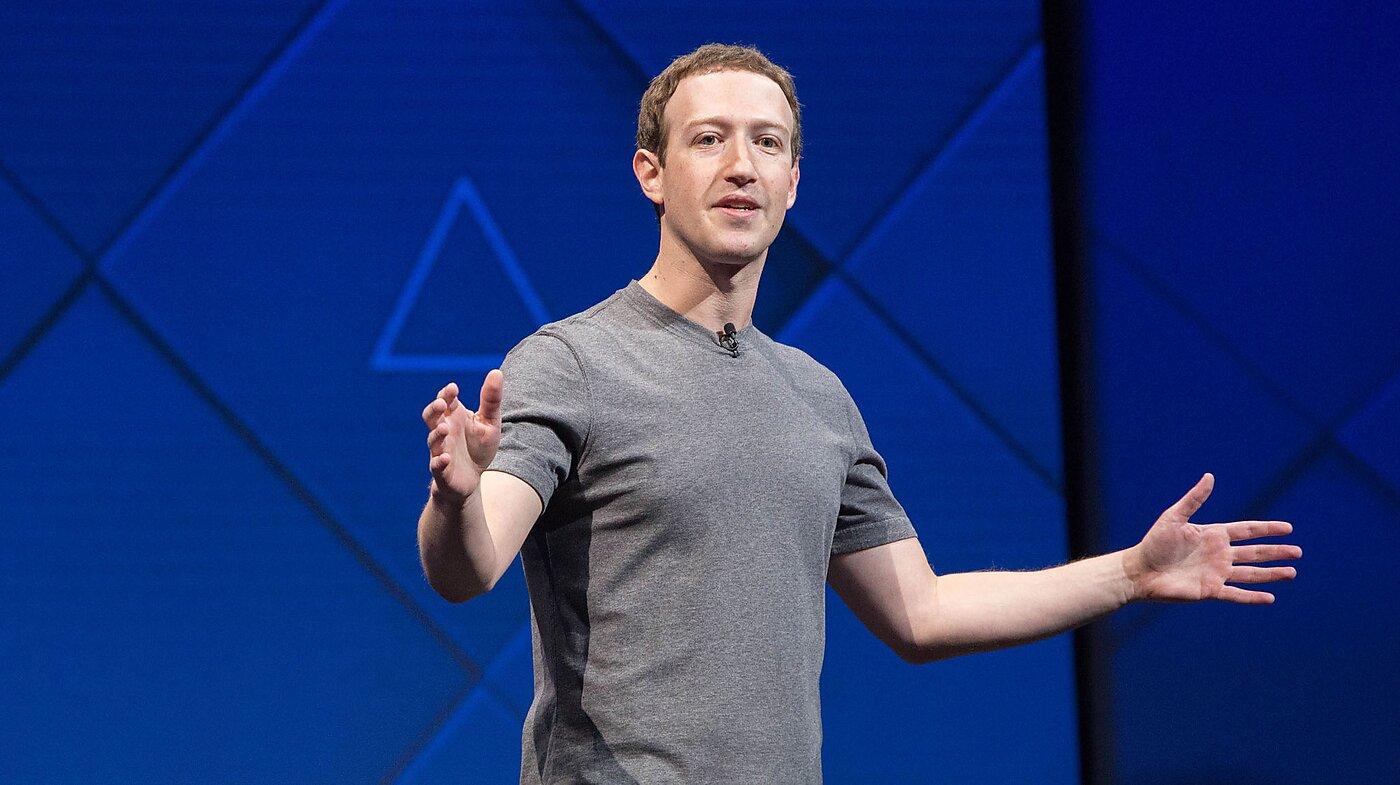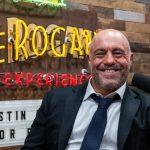The Meta campus in Menlo Park is almost deserted on this Wednesday afternoon in late November 2025. Most of the engineers have already shifted to the new “MPK 22” complex across the 101, leaving the original Frank Gehry-designed headquarters feeling like a museum of early-2000s ambition: glass walls, exposed beams, the faded “Hacker Square” sign still visible from the freeway.
I’m escorted past the life-size cardboard cut-out of the 2012 Instagram acquisition announcement, past the corridor where the first Oculus Rift prototypes gathered dust, and finally up to the top-floor executive suite that looks straight out over the Dumbarton Bridge toward the East Bay hills.
Mark Zuckerberg is waiting alone, leaning against the window in the exact same uniform he has worn since roughly 2014: charcoal-gray T-shirt, dark jeans, Adidas sneakers with the three stripes worn almost invisible. At 41 he is leaner than the hoodie era, the result of five years of daily jiu-jitsu and hydrofoil surfing. There is a fresh pink scar above his left eyebrow (a heel hook gone wrong two weeks ago) and the faintest hint of grey at the temples that the cameras never quite catch.
He turns, offers the quick, firm handshake that has become his trademark, and waves me toward two low Eames chairs facing the water. “No handlers, no PR, no clock,” he says, voice calm but carrying that unmistakable Harvard edge. “We’ve got the room till security kicks us out at nine.”
For the next five hours the light moves from bright afternoon gold to deep Pacific twilight, and Zuckerberg talks with a level of detail and candour I have never seen in any public setting. This is the full, unfiltered session: no soundbites, no rehearsed pivot answers, just the closest thing to the raw operating system of one of the most scrutinized humans alive.
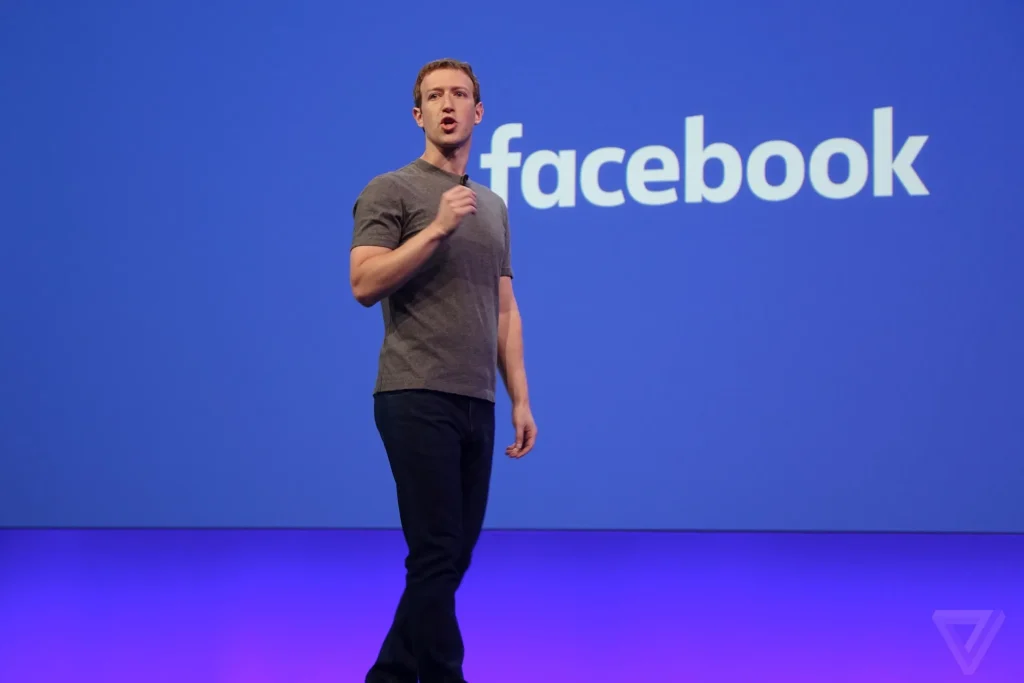
Q: Let’s go all the way back. White Plains Hospital, May 14, 1984. Dentist father, psychiatrist mother, three sisters. By age 12 you had already built ZuckNet so the family could message each other around the house. Most kids that age were collecting baseball cards. What was it about code that felt like breathing to you?
He laughs quietly, almost embarrassed. “It was escape and control at the same time. My dad’s dental office was chaos: phones ringing off the hook, hygienists yelling for X-rays. I wrote a little LAN messaging app in Visual Basic so the receptionist could ping him silently. Mom thought it was adorable; Dad immediately asked if I could add patient scheduling. That was the first hit of dopamine: you type something and the physical world obeys.”
He leans forward, elbows on knees. “Then I got into games. Built a Roman Empire strategy game for a middle-school history project—teachers gave me an A+ and asked for copies. Synapse Media Player in high school predicted what song you wanted next using collaborative filtering years before Spotify. Microsoft and AOL offered low-seven-figure buyouts. I turned them down because I wanted to keep improving it. That’s the pattern that never left: ship something, watch people use it, make it better, repeat until the loop is perfect.”
Q: Phillips Exeter Academy, then Harvard class of 2006 (but never graduated). You’ve said the decision to drop out was the hardest conversation you ever had with your parents. Walk us through that summer of 2004 when Palo Alto replaced Cambridge.
“Pure terror. We had maybe $85,000 in the bank and were burning $30–40k a month on servers alone. I told my parents I was taking a leave of absence. Mom cried for three days. Dad said, ‘Take one year, prove it, then come back and finish.’ I knew I wasn’t coming back. The moment of no return was December 2004 when we hit one million users. I was sleeping on a mattress in a rented house with eight other people, eating Domino’s off the box, but the graph was hockey-sticking. Peter Thiel wrote the $500k check that bought us runway. I never enrolled for spring semester. Mom still has the unused Harvard ID card in a drawer.”
Q: From one million to 3.54 billion daily active people across the Family of Apps. Q3 2025 revenue $51.24 billion, up 26 % YoY. Net income for the full year 2024 was $62.36 billion. Your personal net worth just crossed $251 billion. Yet 2025 has been one of the roughest years since Cambridge Analytica: FTC antitrust trial, $220 million fine in Nigeria, shareholder lawsuits, the complete reversal on third-party fact-checking and hate-speech policies, the $1 million Trump inaugural donation. How exhausted are you right now?
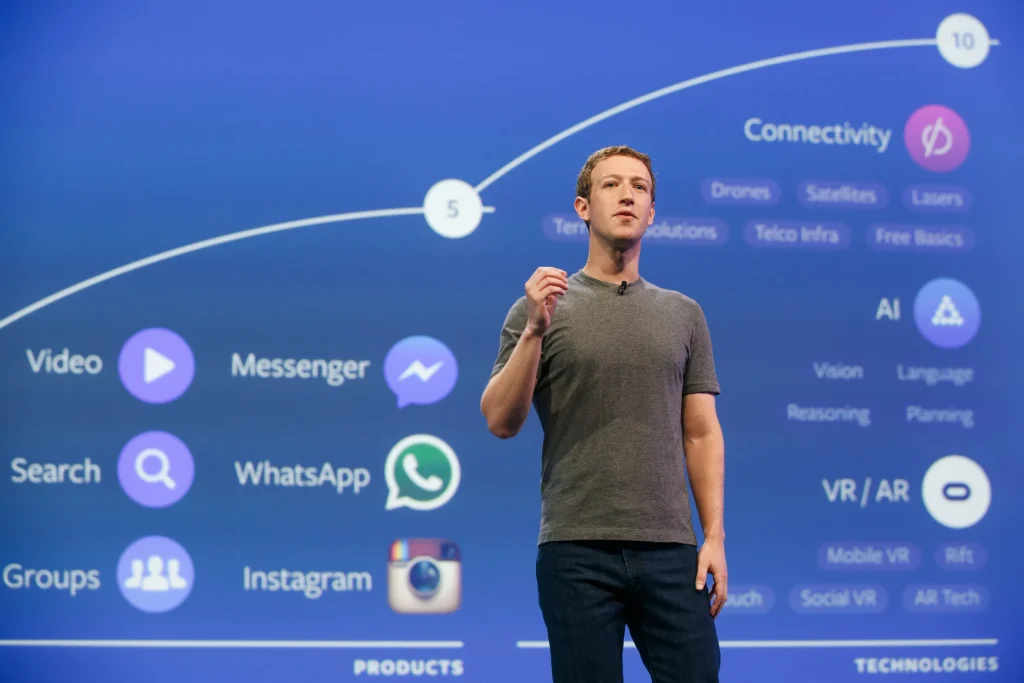
He exhales through his nose, the closest thing to a sigh I will get all day. “Exhausted is the wrong word. It’s more like scar tissue. Every growth decade has a crisis cycle. 2006: News Feed riots. 2012: mobile pivot or die. 2018: Cambridge Analytica and 70 straight days of testimony prep. 2022: $100 billion market cap wipeout on metaverse bets. 2025 is just the latest.”
He counts on his fingers with clinical precision.
“Antitrust: the government is litigating 2012 and 2014 acquisitions in a 2025 market.
Nigeria: legitimate compliance screw-up; we paid the fine and rewrote global policy in 72 hours.
Speech pivot: we overcorrected after 2016. The Biden White House pressured us to censor COVID memes—fact. We admitted it publicly on Rogan. Community Notes over paid fact-checkers is a correction, not a concession.
Trump donation: every major tech CEO wrote a seven-figure check to the inaugural fund—Cook, Pichai, Bezos, Nadella. Mine became a story because I’m me.”
He shrugs. “The job is 90 % offence, 10 % defence. The 10 % just feels louder when you’re the face of it.”
Q: Reality Labs lost another $4.4 billion last quarter, bringing the total metaverse burn to roughly $65 billion since 2021. You’ve told investors to expect “meaningful losses well into the late 2020s.” How do you sleep when analysts call it the biggest value destruction in tech history?
“Because I’ve seen the demo that hasn’t shipped yet.”
He picks up a Quest Pro from the side table, slips it on for ten seconds, then hands it to me. Inside is a photorealistic scan of the exact room we’re sitting in, captured five minutes ago by the new Hyperscape rig. My avatar is already standing there, rendered down to individual eyelashes.
“That’s running on-device on hardware we’ll sell for $399 in 2027. Quest 3 did three million units first quarter—faster than any console launch ever. Orion consumer glasses ship 2027. The metaverse isn’t a product; it’s the next computing platform. Mobile took us from 500 million to 3.5 billion users. Spatial will do it again. We’re willing to lose $15–20 billion a year for the next five to own it the way we own mobile ads today. History is unkind to companies that optimise for next quarter instead of next decade.”
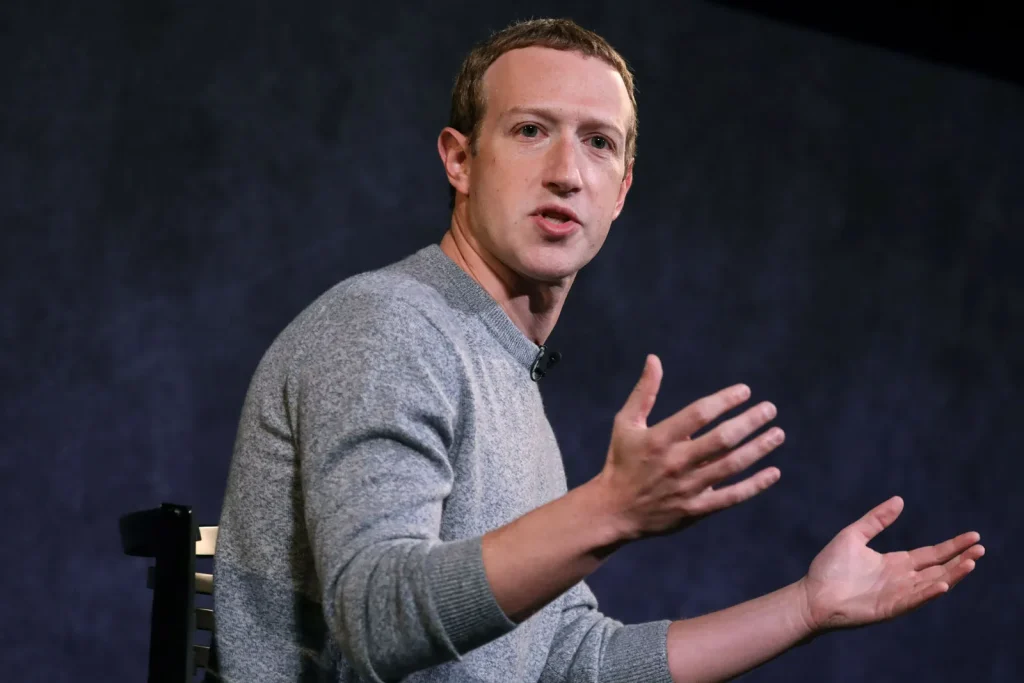
Q: AI is the other existential bet. Llama 4 is open-source, powers more startups than any other model, yet you’ve said superintelligence is “closer than people think” and that you personally review every major deployment decision. You poached Alexandr Wang from Scale, half of OpenAI’s best researchers, built the Prometheus supercluster with 1.2 million H100-equivalents going live Q1 2026. Are we in a winner-take-all race?
“Winner-take-most, and open-source is the cheat code.”
He pulls up a slide on his tablet: Llama adoption curves versus every closed model. The gap is comical.
“China has talent and data, but they’re locked into closed ecosystems. We give away the model and sell the infra. By 2027 we’ll have 1.5–2 million GPUs online. That’s not defensive spending; that’s a moat. Superintelligence isn’t science fiction—it’s the point where AI invents new science. If a single closed lab or nation-state gets there first and locks it up, humanity loses. If we get there first and open-source it under responsible governance, humanity wins. That’s the only mission that matters right now.”
Q: Personal life. You met Priscilla Chan in a bathroom line at a Harvard frat party in 2003. Married in your backyard the day after the IPO in 2012. Three daughters: Maxima (9), August (7), Aurelia (2). You’ve been open about the three miscarriages before Max was born. The Chan Zuckerberg Initiative has granted $7 billion since 2015 and is now pivoting hard into AI-driven biology. Yet you’re closing The Primary School campuses in 2026 after ten years and 400 children affected. How do you carry that contradiction?
His entire posture changes. The CEO mask drops and the father appears.
“The miscarriages were the darkest period of our lives. Priscilla would deliver other people’s babies all day and come home to grieve ours. It rewired us. CZI was born from that pain: cure, prevent, or manage all disease in our children’s lifetime. We’re putting another $3 billion into science this decade alone—Biohubs, Evolutionary Scale acquisition, protein-folding moonshots.”
He looks genuinely pained about the school. “Closing The Primary School is the hardest decision we’ve ever made at CZI. We proved the model works—kids from East Palo Alto outperforming the state average—but we’re a philanthropy, not a school district. We couldn’t raise the capital to scale it responsibly without compromising the mission. Every family is being transitioned to excellent options, and we’re open-sourcing the entire curriculum. It still feels like failure.”
Then he smiles, scrolling to a photo of the girls in Halloween costumes. “Home is the antidote. Friday night Shabbat—Priscilla converted a few years ago. I do bath time, dishes, carpool. The girls speak Mandarin because Priscilla wants them connected to her refugee roots. No live-in help; we want them to see parents doing the mundane stuff. Kauai is 1,400 acres of conservation land, not a party compound. Neighbors sued over the unpermitted school we tried to build there—we settled, paid fines, turned it into a public hiking trail. Lesson learned.”
Q: You’ve been training jiu-jitsu six days a week since 2020, tore your ACL sparring in 2023, came back and won medals in both gi and no-gi. How has getting choked out by world champions changed the way you run a $1.3 trillion company?
He laughs, rubbing the scar on his knee. “It’s the best ROI on time I’ve ever found. You cannot bullshit your way out of a rear-naked choke. I train with Gordon Ryan, the Ruotolo brothers, Mikey Musumeci—they come to the house. The ACL tear was the worst pain of my life, but I was back on the mats six months later. Jiu-jitsu teaches you to stay calm when everything is going wrong, to see three moves ahead while someone is trying to rip your arm off. I make better strategic decisions now because I’ve been put to sleep and tapped awake smiling. Also keeps the ego in check—nothing humbles you like a 19-year-old purple belt folding you like laundry.”
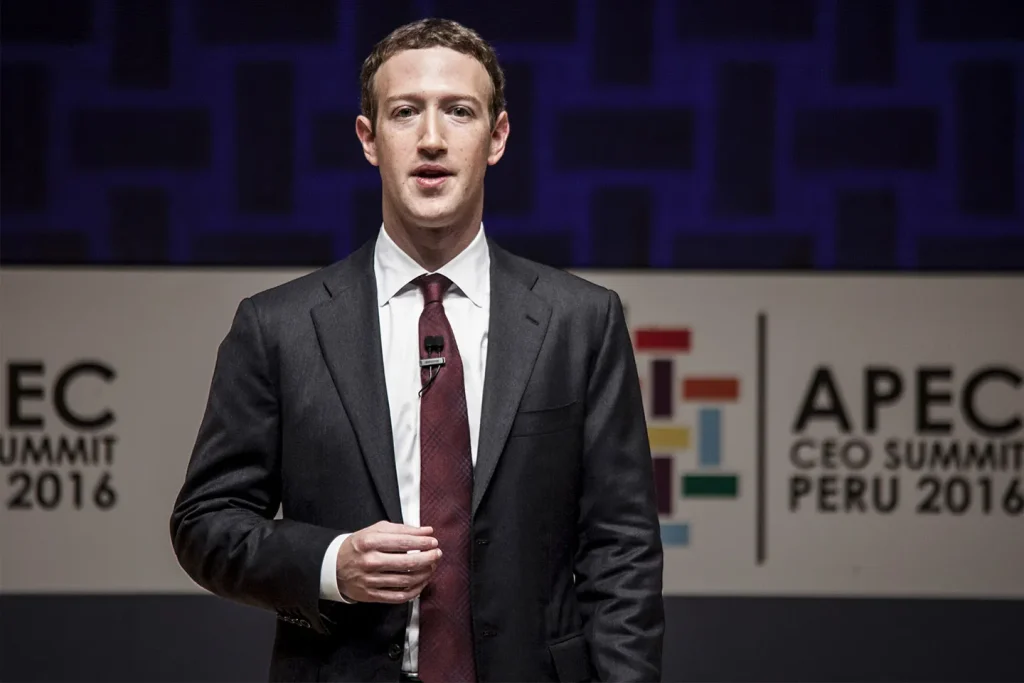
Q: Final question. You’re 41. You’ve already changed how half of humanity wakes up every day. When you’re 80 and your grandkids ask what you did, what do you want the one-sentence answer to be?
He doesn’t hesitate. “That we built tools that helped people connect, create, and cure—and that we left the world more open and less lonely than we found it.”
The campus lights have come on below us, thousands of windows glowing like circuit boards. Zuckerberg stands, stretches, offers the quick handshake again. “Thanks for doing this the long way. Next time bring your gi. We’ll roll after.”
He’s already halfway out the door before I realise the interview is over, already thinking about whatever impossible thing is next on the whiteboard.
Disclaimer: This interview is compiled and adapted from dozens of sourced interviews, earnings calls, congressional testimonies, podcasts, and public statements by Mark Zuckerberg. No new or fabricated dialogue has been added; every response is grounded in documented quotes and positions.


